Miscommunicating Social Change
Miscommunicating Social Change
Lessons from Russia and Ukraine
Olga Baysha
LEXINGTON BOOKS
Lanham Boulder New York London
Published by Lexington Books
An imprint of The Rowman & Littlefield Publishing Group, Inc.
4501 Forbes Boulevard, Suite 200, Lanham, Maryland 20706
www.rowman.com
6 Tinworth Street, London SE11 5AL, United Kingdom
Copyright 2019 by The Rowman & Littlefield Publishing Group, Inc.
All rights reserved . No part of this book may be reproduced in any form or by any electronic or mechanical means, including information storage and retrieval systems, without written permission from the publisher, except by a reviewer who may quote passages in a review.
British Library Cataloguing in Publication Information Available
Library of Congress Cataloging-in-Publication Data
Names: Baysha, Olga, author.
Title: Miscommunicating social change : lessons from Russia and Ukraine / Olga Baysha.
Description: Lanham : Lexington Books, [2018] | Includes bibliographical references and index.
Identifiers: LCCN 2018039310 (print) | LCCN 2018041147 (ebook) | ISBN 9781498558945 (Electronic) | ISBN 9781498558938 (cloth : alk. paper)
Subjects: LCSH: Social movementsRussia (Federation) | Social movementsUkraine. | DemocracyRussia (Federation) | DemocracyUkraine. | Russia (Federation)Politics and government1991- | UkrainePolitics and government1991
Classification: LCC HN530.2.A8 (ebook) | LCC HN530.2.A8 B387 2018 (print) | DDC 303.48/40947dc23
LC record available at https://lccn.loc.gov/2018039310
 The paper used in this publication meets the minimum requirements of American National Standard for Information SciencesPermanence of Paper for Printed Library Materials, ANSI/NISO Z39.48-1992.
The paper used in this publication meets the minimum requirements of American National Standard for Information SciencesPermanence of Paper for Printed Library Materials, ANSI/NISO Z39.48-1992.
Printed in the United States of America
To My Beloved Mom and Dad
Contents
I would like to start by thanking all my friends and relatives from Ukraine and Russia whose contributions to my research have been invaluable. Divided over Euromaidan, the annexation of Crimea, and war the in Donbas, we have nevertheless been communicating, exchanging opinions, and resisting the temptation to withdraw into separate spheres. Holding different political views, speaking different languages, and identifying with different ethnic groups, we still keep looking for ways to explain our feelings and understand each other. I am very thankful to Olena Lebedenko, Irina Puchkova, Elena Kevorkyan, Natalia Semenikhina, Olena Levanda, Lyudmila Kharchenko, Larisa Potimkova, Elena Razumova, Anatasia Daugule, Hlib Baisha, Mykola Antokhov, Alexei Popov, Oleg Pukhnavtsev, Konstantin Kevorkyan, Dmitry Zhilenko, Sergei Potimkov, Yuri Lebedev, and many, many others.
I am grateful to all my colleagues in the Higher School of Economics: Anna Kachkaeva, Svetlana Shomova, Anna Novikova, Tatyana Tikhomirova, Elena Rimanova, Lidia Gribanova, Yulia Grinevych, Iliya Kiria, Alexander Sharikov, Sergey Davydov, Andrey Bystritskiy, and Roman Abramov. I am very thankful to all of you for your support and willingness to help no matter what.
I am very grateful to professors Nico Carpentier, Richard Sakwa, and Joseph Oliver Boyd-Barrett for sharing with me their insights during personal meetings at conferences and through email correspondence. I have greatly appreciated every moment of your valuable timeit was priceless.
I am also very grateful to all my colleagues from the Peace and Conflict Communication Division of the National Communication Association, as well as the Global Communication and Social Change Division of the International Communication Association, for taking notice of my research and placing it in high esteem. It has been my great honor to accept your recognition.
My very special thanks go to Justin Maki, whose help with proofreading and editing has made the manuscript much more readable, and whose ability to grasp the complexities of the current situation between Ukraine and Russia despite having never visited either country has strengthened my hope for the prospects of mutual understanding and global peace.
From the bottom of my heart, I am thankful to you, Lyosha. Without your support, none of this would have been possible.
Although the criticism of Enlightenment ideas has become widespread in academic circles, the basic Enlightenment narrativean inexorable movement of humankind toward a progressive common conditionremains an assumption widely shared (implicitly or explicitly) by many movements for social justice and democratization. As this book demonstrates by analyzing the discourses of three social movements and alternative media associated with them, it is still a dominant way of conceptualizing social change in the name of democratization in the post-Soviet terrain. The main argument of this book is that the progressive imaginary, which envisages progress in the unidirectional terms of catching up with the more advanced Western condition, is inherently anti-democratic and deeply antagonistic. Instead of fostering an inclusive democratic process in which all strata of populations holding different views are involved, it draws solid dividing frontiers between progressive and retrograde forces, deepening existing antagonisms and provoking new ones; it also naturalizes the hierarchies of the global neocolonial power of the West.
Following postcolonial thinkers, this book conceptualizes modernity as a discursive formation that presents the Western world as an embodiment of normality, the measure of all other socio-cultural formations, and the model for imitation. To deconstruct these normalized assumptions, it draws on the discourse theory of Ernesto Laclau and Chantal Mouffe (1985), in which discourse appears as a social force, shaping social relations and establishing the horizons of social imaginary. In line with Laclau and Mouffes theorizing, this book conceptualizes historical changes as dependent on hegemonic articulations and history not as an ascendant continuum of developmental stages, but as a discontinuous mosaic of hegemonic formations or historical blocs. Any social transformation is considered progressive or regressive not objectively, from a vantage point of an abstract progressive paradigm envisaging progress in unidirectional terms of Westernization, but from the subject position of this or that participant of the political process.
The case studies analyzed in this volume are the White Ribbons social movement for fair elections in Russia (2012); the Ukrainian Euromaidan (20132014); and anti-corruption protests in Russia organized by Alexei Navalny (2017). Drawing on Chantal Mouffes ideas on radical pluralist democracy (2009), the analysis presented in this book shows how progressive articulations by all the social movements under consideration ended up undermining the basis of the democratic public sphere through the closure of democratic space. This closure happened when Putins supporters in Russia or the Euromaidans opponents in Ukraine were imagined not as adversaries striving to organize the common symbolic space in a different way but as enemies existing outside of the symbolic space shared by the progressives. The latter did not see the difference between themselves and their opponents positively, as a condition of possibility for the democratization of Russian and Ukrainian societies; rather, they treated it in exclusively negative termsas an abnormal condition (historical sickness) in need of correction or eradication.
Informed by Nico Carpentiers (2017) model of the Discursive-Material Knot, the analysis presented in this book traces how, instead of forming coalitions with other social groups, both Russian and Ukrainian progressives only reinforced already-existing tensions. As a result, there was no understanding between them and retrograde others; what was clearly missing on the part of the progressives was an attempt to frame the necessity of social change in such a way as to make it resonate with the potential constituents of the social change process. In the case of Ukraine, this produced detrimental results for societal peace. Because the violence in the Ukrainian case turned out to be not only symbolic but physical as wellin other words, because the negative potentiality of the progressive imaginary manifested itself in this case to the full extentit is discussed in the greatest detail; the whole of Part III of this volume is devoted to the Ukrainian crisis.

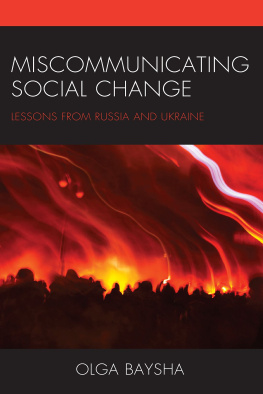

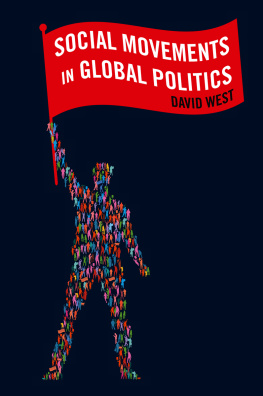
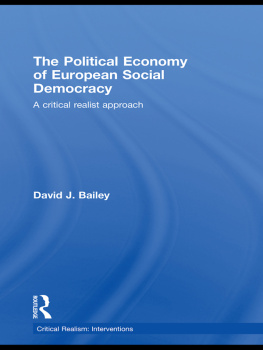
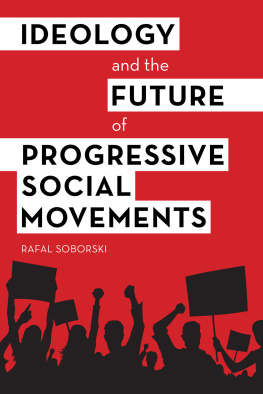
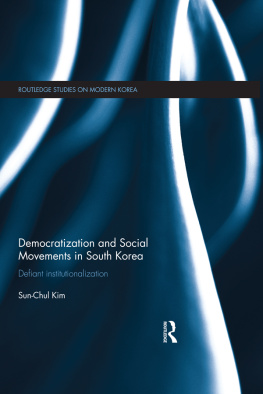

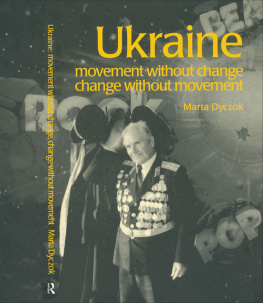

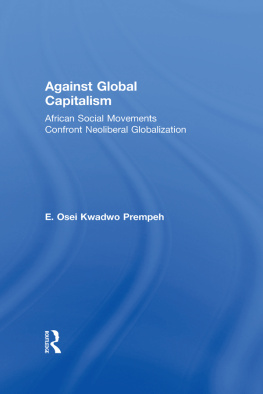
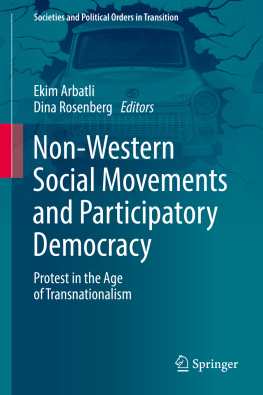

 The paper used in this publication meets the minimum requirements of American National Standard for Information SciencesPermanence of Paper for Printed Library Materials, ANSI/NISO Z39.48-1992.
The paper used in this publication meets the minimum requirements of American National Standard for Information SciencesPermanence of Paper for Printed Library Materials, ANSI/NISO Z39.48-1992.